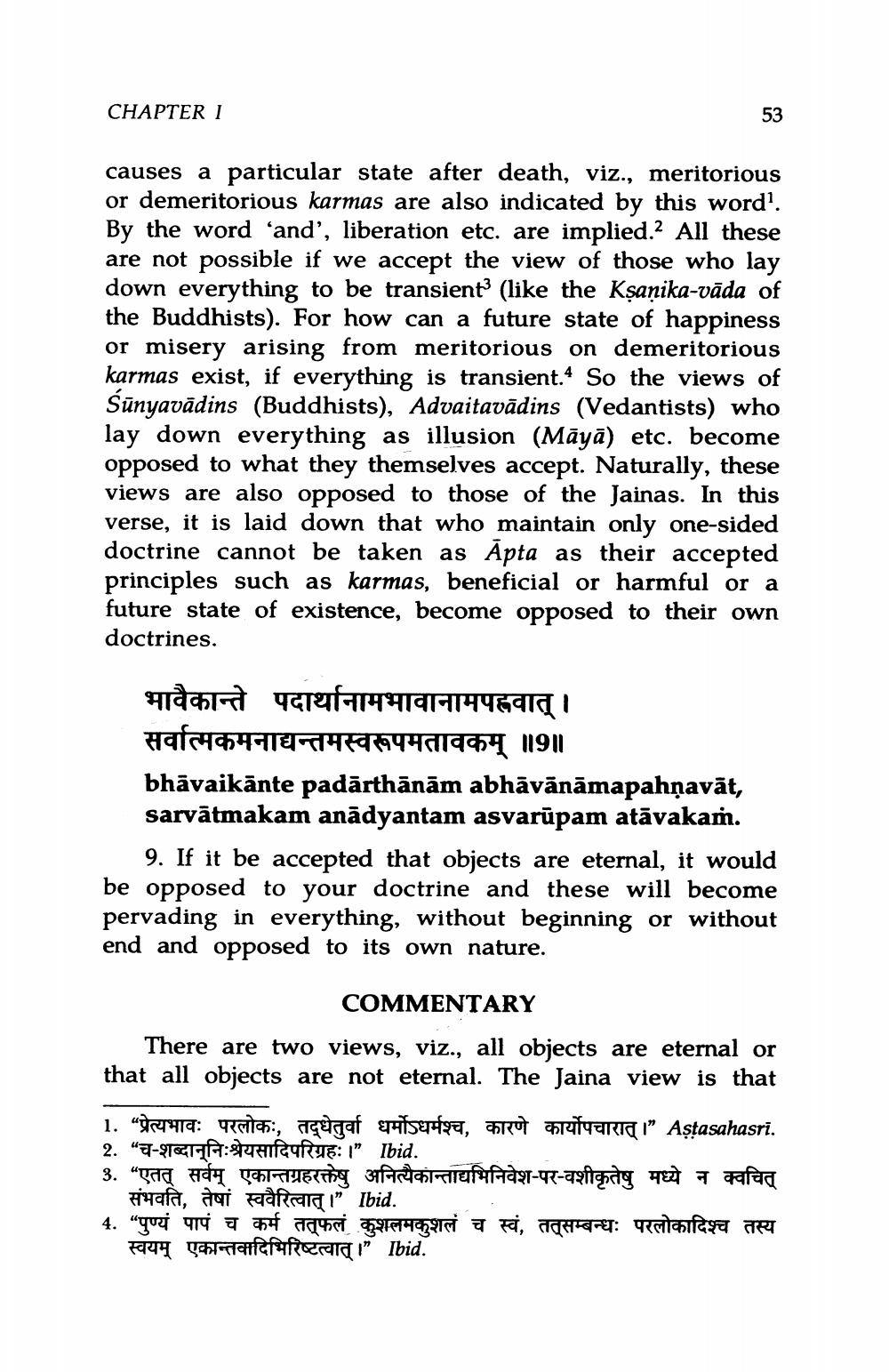________________
CHAPTER 1
causes a particular state after death, viz., meritorious or demeritorious karmas are also indicated by this word'. By the word 'and', liberation etc. are implied.? All these are not possible if we accept the view of those who lay down everything to be transient (like the Kṣaṇika-vāda of the Buddhists). For how can a future state of happiness or misery arising from meritorious on demeritorious karmas exist, if everything is transient. So the views of Sūnyavādins (Buddhists), Advaitavādins (Vedantists) who lay down everything as illusion (Māyā) etc. become opposed to what they themselves accept. Naturally, these views are also opposed to those of the Jainas. In this verse, it is laid down that who maintain only one-sided doctrine cannot be taken as Āpta as their accepted principles such as karmas, beneficial or harmful or a future state of existence, become opposed to their own doctrines.
भावैकान्ते पदार्थानामभावानामपहवात्। सर्वात्मकमनाद्यन्तमस्वरूपमतावकम् ॥9॥ bhāvaikānte padārthānām abhāvānāmapahņavāt, sarvātmakam anādyantam asvarūpam atāvakaṁ.
9. If it be accepted that objects are eternal, it would be opposed to your doctrine and these will become pervading in everything, without beginning or without end and opposed to its own nature.
COMMENTARY There are two views, viz., all objects are eternal or that all objects are not eternal. The Jaina view is that 1. dywna: palai, atgaf rutseroga, freut frutiarra.” Aștasahasri. 2. “9-97:stafa Rue: ” Ibid. 3. “एतत् सर्वम् एकान्तग्रहरक्तेषु अनित्यैकान्ताद्यभिनिवेश-पर-वशीकृतेषु मध्ये न
Hafa, dei Faac I” Ibid. 4. "पुण्यं पापं च कर्म तत्फलं कुशलमकुशलं च स्वं, तत्सम्बन्धः परलोकादिश्च तस्य
Fal44 h itelferici" Ibid.




